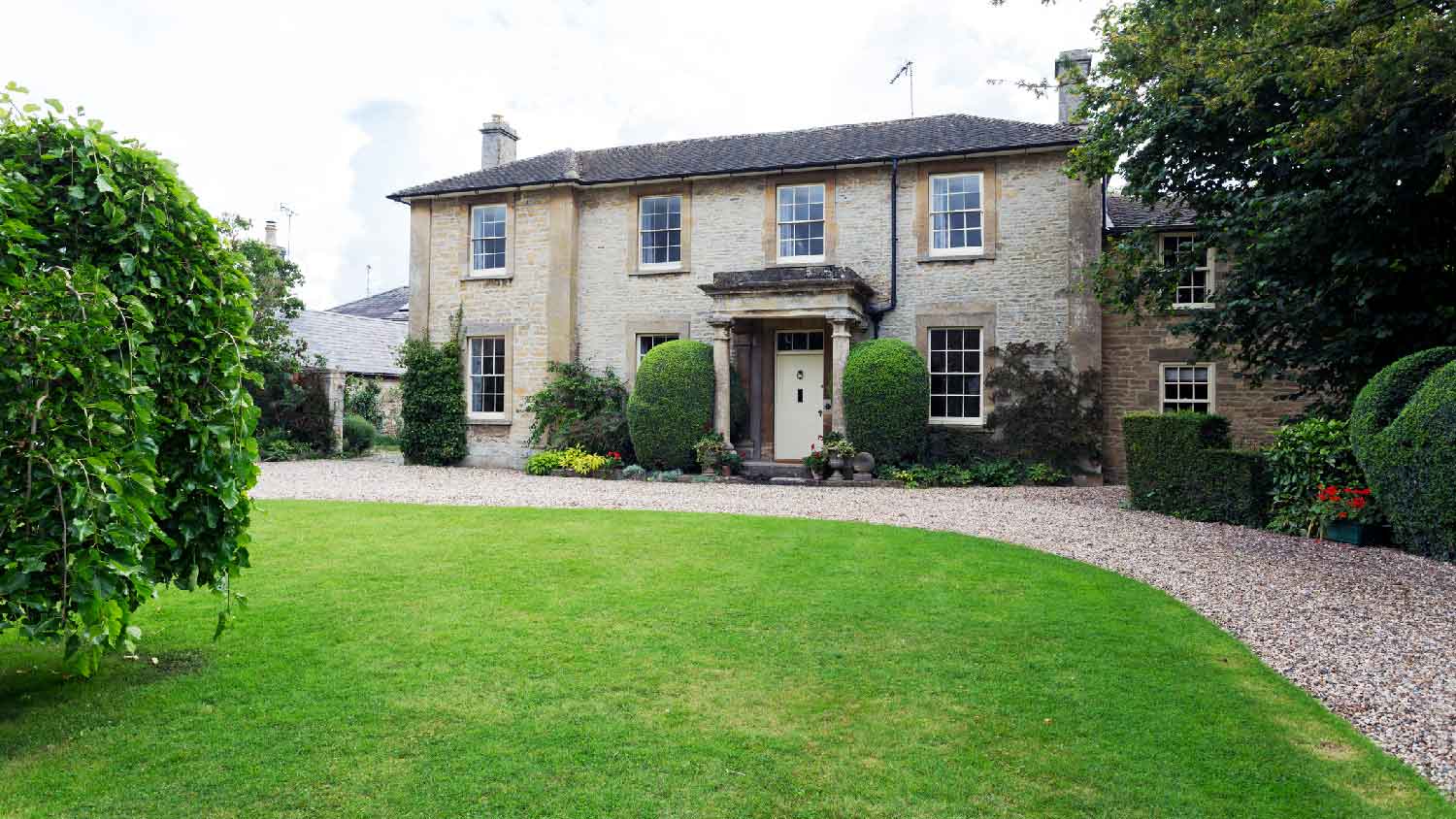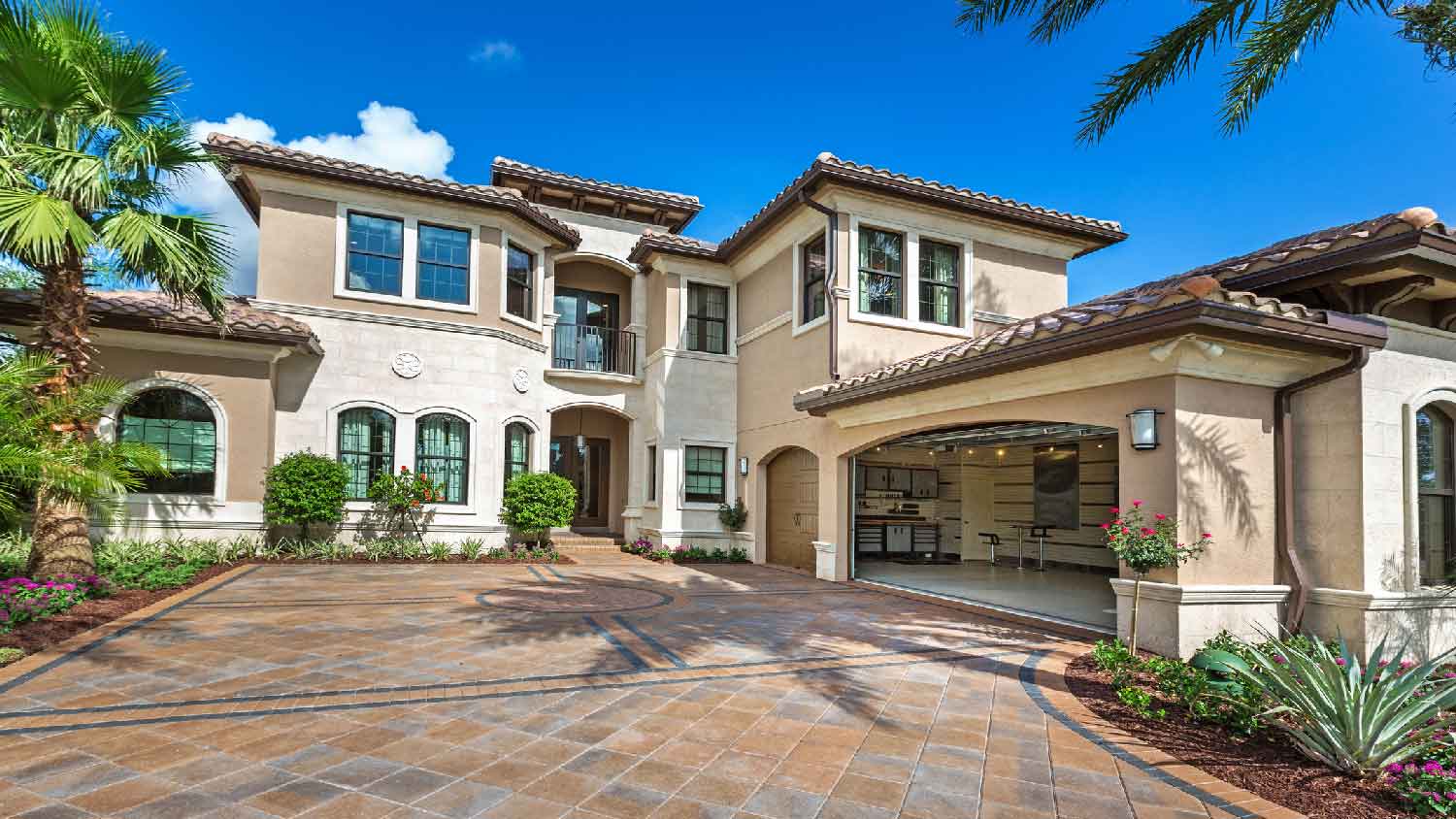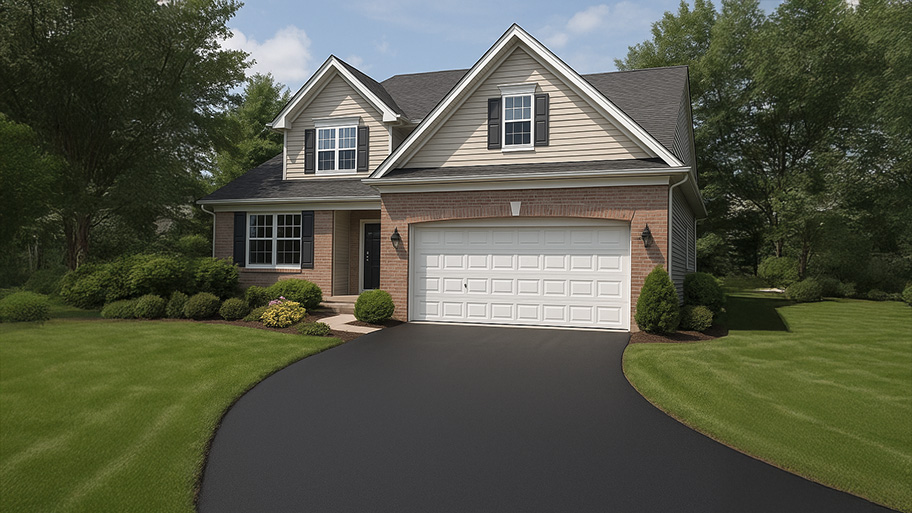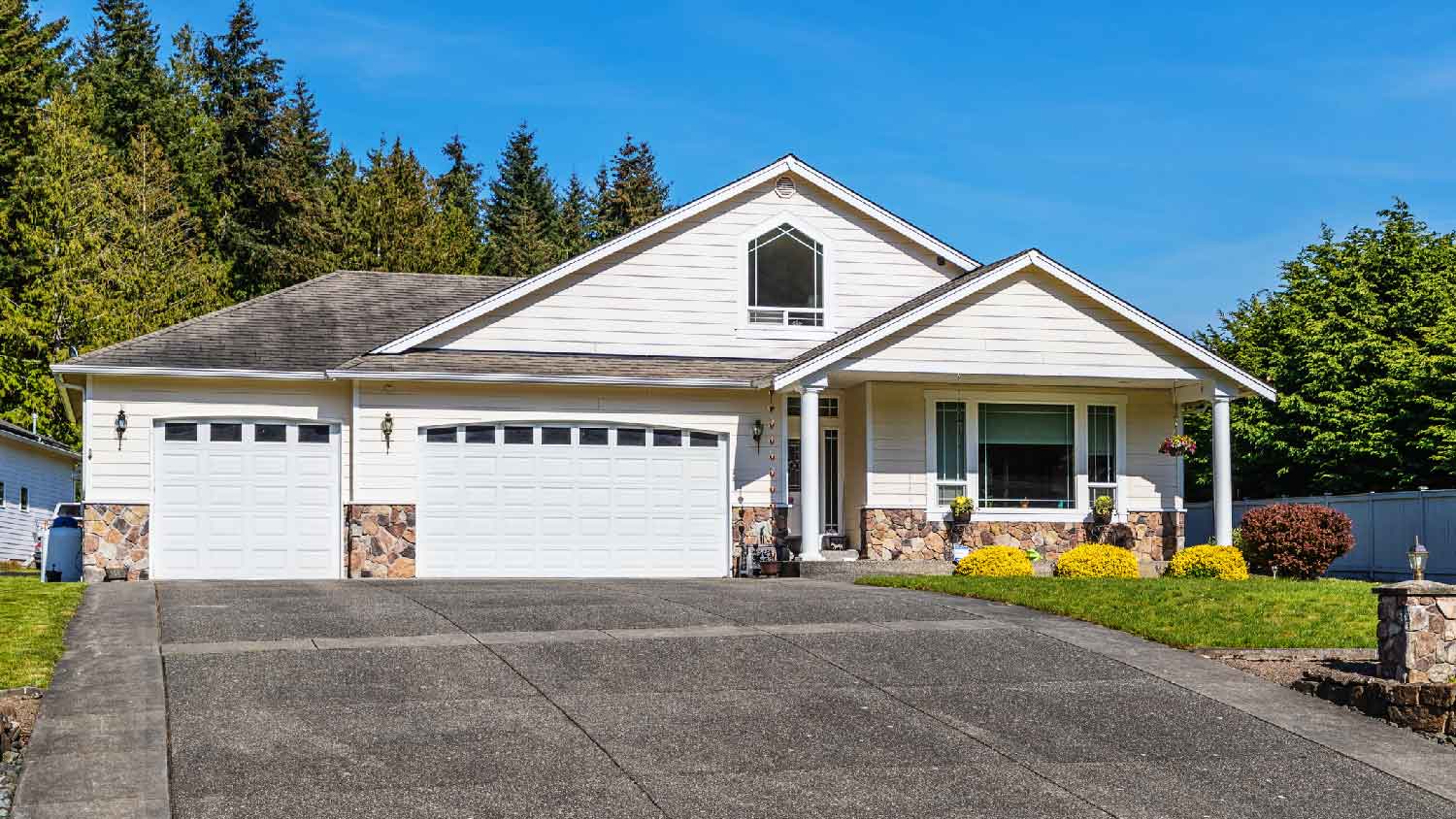
When designing a driveway, it's crucial to know the cost of your driveway apron—the transitional ramp that connects you to the road. Here's what to know.
Decoding the pros and cons of decomposed granite


As one of the most affordable driveway options, a decomposed granite driveway costs between $0.30 and $0.70 per square foot on average.
Most decomposed granite driveways last seven to 10 years before needing to be refilled.
Decomposed granite is extremely permeable.
This option is great for drainage.
A decomposed granite driveway can be a quick and affordable way to get a driveway done. Derived from regular granite, decomposed granite is a weathered material that breaks easily into smaller pieces that can be piled together to make a compact surface. While there are many cost and aesthetic benefits to decomposed granite, there are also downsides to know about that could make this a poor choice compared to other types of driveways. Keep reading to learn all about the pros and cons of choosing a decomposed granite driveway.
Decomposed granite is a substance made of granite aggregates that are typically 1/4 inch or smaller. This ultra-fine form of granite can easily be mistaken for sand at first glance. While commonly used for landscaping, decomposed granite can also be used for driveways. As a natural mineral substance, decomposed granite can be found in a wide range of colors that include golds, reds, browns, tans, greys, and greens. Generally, decomposed granite with resin is recommended for driveways because it creates a natural-looking alternative to asphalt.

Attractive and affordable deposed granite has many benefits when used for driveways. However, it's not as commonly known as standard options for finishing driveways. This list of the pros of decomposed granite for driveways will give you a better idea of the perks of this option.
Decomposed granite driveways are extremely permeable compared to other options. The permeability of this material allows for easy stormwater drainage. For homeowners in flood-prone regions, that means that decomposed granite may help to mitigate flooding issues. It can also save homeowners money by either reducing or eliminating the need for extra drainage.
With a cost of just $0.30 to $0.70 per square foot on average, decomposed granite can be an economical way to finish a driveway. Compared to gravel, which costs anywhere from $1.25 to $1.80 per square foot for a similar project, decomposed granite can leave more room in your budget for other landscaping costs. Installation is also cheaper with decomposed granite because there's no need for heavy, complicated equipment.
Many homeowners choose decomposed granite as part of a plan for earthy, natural-looking landscaping. Unlike asphalt driveways that can look harsh, decomposed granite blends into the landscape. It also comes in a variety of hues that are much softer next to greenery compared to the standard blacktop look of regular driveways.
Decomposed granite is considered one of the most eco-friendly driveway options. Unlike other options that require extensive refinement using chemicals and equipment, decomposed granite needs minimal production. Its permeable quality allows water to be reabsorbed back into the ground instead of becoming runoff.
While decomposed granite driveways look elegant and natural, they aren't perfect for every property. There are some downsides to know about before you commit to this option. Take a look at the cons of choosing decomposed granite for your new driveway.
In order to enjoy the enhanced drainage and permeability offered by decomposed granite, a decomposed granite driveway should be properly stabilized using excavation and pavers. If a driveway isn't properly stabilized, drainage may be poor. Additionally, not properly stabilizing this type of driveway can actually allow weeds to grow up through the granite.
While the issues caused by loose granite can mostly be mitigated using stabilization with pavers, this substance can turn dusty. When it does, it tends to migrate out of the designated driveway area. You may find "bald" spots in your driveway that allow puddles and ruts to form.
Decomposed granite can sometimes stick to the bottoms of shoes. This can cause you to inadvertently track granite particles inside your home. Unfortunately, this can cause small scratches on wood or tile floors.
A typical loose granite driveway may only last for seven to 10 years before it needs to be restored. Other driveways might last anywhere from 15 to 100 years before breaking down. However, the good news is that decomposed granite can be fixed easily by pouring more material down over an existing driveway.

While decomposed granite checks boxes for cost and aesthetics for many homeowners, it's far from the only option. A number of classic and "boutique" driveway materials offer similar benefits to decomposed granite. Here's a look at the best alternatives to decomposed granite for driveways:
Gravel: Lasting 50 to 100 years, a gravel driveway costs $1 to $3 per square foot
Asphalt: Lasting 15 to 30 years, an asphalt driveway costs $7 to $13 per square foot
Pavers: Lasting 20 to 25 years, a paver driveway costs $10 to $30 per square foot
Concrete/Cement: Lasting 30 years, a concrete driveway costs $4 to $8 per square foot
Brick: Lasting 25 years, a brick driveway costs $8 to $15 per square foot
Cobblestone: Lasting up to 100 years, a cobblestone driveway costs $40 to $75 per square foot
Because of the loose nature of decomposed granite, topping it with pavers is really the only valid, effective way to create a durable, functional driveway with decomposed granite. For example, you may lay decomposed granite on top of a gravel driveway, then add permeable concrete blocks over the granite. The paver layer at the very end helps stabilize decomposed granite and hold it in place, benefitting from the additional drainage the material provides, ensuring your permeable driveway can handle the severest storms throughout the year.
When looking for an affordable option offering a rustic look, decomposed granite is an excellent choice for homeowners. This can also be a good choice if you want an eco-friendly driveway with strong drainage. However, the key to enjoying success with this option is to put in the time and money needed to properly excavate the full length of the driveway in order to stabilize it with pavers. The best way to do this is to work with a local driveway company. Homeowners who choose this option also need to be prepared to update their driveway by filling it in with more decomposed granite about once every decade.
From average costs to expert advice, get all the answers you need to get your job done.

When designing a driveway, it's crucial to know the cost of your driveway apron—the transitional ramp that connects you to the road. Here's what to know.

Use our guide to calculate the cost to seal an asphalt driveway. Prices vary based on the type of sealant and the size of the driveway.

Discover the average cobblestone driveway cost based on factors like the size and scope. Keep reading to budget for a cobblestone driveway.

Wondering how to seal a driveway? We break down this weekend project into 11 easy steps.

What is asphalt, and what’s it made of? We’ll explore the definition of asphalt—and its pros and cons—in this guide.

Pooling water can deteriorate your driveway faster while negatively impacting the landscape. Use this guide to explore drainage solutions to keep your driveway in great shape.